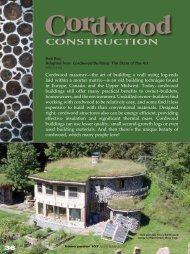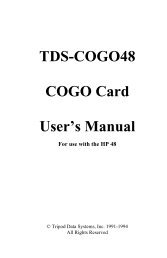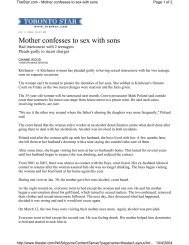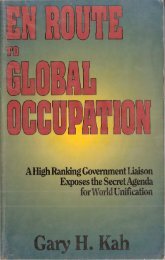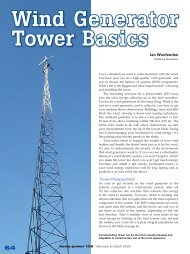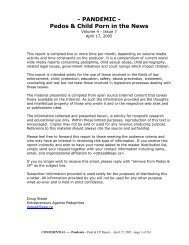G. Edward Griffin - The Fearful Master - PDF Archive
G. Edward Griffin - The Fearful Master - PDF Archive
G. Edward Griffin - The Fearful Master - PDF Archive
You also want an ePaper? Increase the reach of your titles
YUMPU automatically turns print PDFs into web optimized ePapers that Google loves.
Jessup served as assistant secretary-general of the UNRRA conference in 1943 and the<br />
Bretton Woods Conference in 1944. He was a member of the American delegation to the<br />
San Francisco conference in 1945. He was also the United States representative on the<br />
fifteen-man United Nations committee of jurists that had drafted the World Court statute.<br />
Continuing as a technical expert and advisor to various important UN commissions,<br />
Jessup prepared the State Department's infamous "White Paper" on China. Written at the<br />
very time when the Communists were overrunning the mainland of China, this report<br />
lavishly praised the Reds and condemned the anti-Communist Nationalist forces. Jessup<br />
later became one of the early advocates for the admission of Red China to the United<br />
Nations.<br />
President Truman was so impressed by this record that he appointed Jessup as United<br />
States delegate to the United Nations in 1951. When the appointment came before the<br />
Senate, however, it was not approved because of Jessup's pro-Communist record. At the<br />
United Nations, Soviet delegate Vyshinsky reacted by praising Jessup during a meeting of<br />
the General Assembly’s political committee. Vyshinsky said he bad "learned with dismay"<br />
the Senate's decision." 41 Equally dismayed, of course, was President Truman who<br />
proceeded to circumvent the Senate action by assigning Jessup to the United Nations on<br />
an "interim appointment." 42<br />
Shortly after the Eisenhower administration came in on the promise of cleaning the United<br />
States security risks out of the United Nations, the State Department approved the<br />
appointment of Philip Jessup as our candidate for the UN World Court--an infinitely more<br />
important position than the one denied him by the Senate. This time, however, neither<br />
Congress nor the Senate had any voice in the selection.<br />
Even though each country is allowed to nominate two of its own nationals and two from<br />
other countries, the United States elected to nominate three foreigners with Philip Jessup<br />
as the only American--making it very clear to all that he was the man!<br />
In the final voting, Jessup was elected by an overwhelming majority. With both the United<br />
States and the USSR voting for him, how could he miss?<br />
NOTES<br />
1. Interlocking Subversion in Government Departments, SISS report (July 30, 1953), pp.<br />
8-10.<br />
2. Ibid.<br />
3. Ibid.<br />
4. Time (April 16, 1945), international section.<br />
5. Insignia, conference issue (1801 Broadway, San Diego, Calif., 1945), vol. 6, no. 1, P.<br />
67.<br />
6. "Russia Keeps Up Pressure on Withdrawal," London Daily Telegraph (August 23,<br />
1958). As quoted by Mark Ewell, Manacles for Mankind (London, Britons Publishing<br />
Company, 1960), p. 50.<br />
7. Statement by Senator Edwin Mechem, a former FBI agent assigned to cover Alger Hiss<br />
and other Russian spies, Chicago Tribune (May 26, 1963), sec. 1, p. 4.


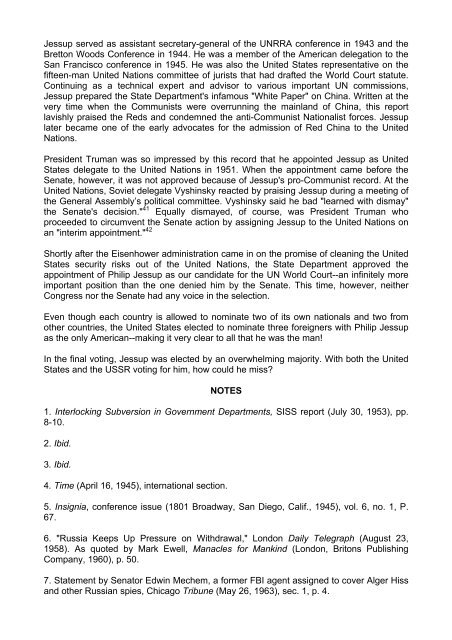
![Robert T McQuaid [rtmq@stn.net] Sent: Friday, October 29, 2004 12 ...](https://img.yumpu.com/51070071/1/190x245/robert-t-mcquaid-rtmqstnnet-sent-friday-october-29-2004-12-.jpg?quality=85)
